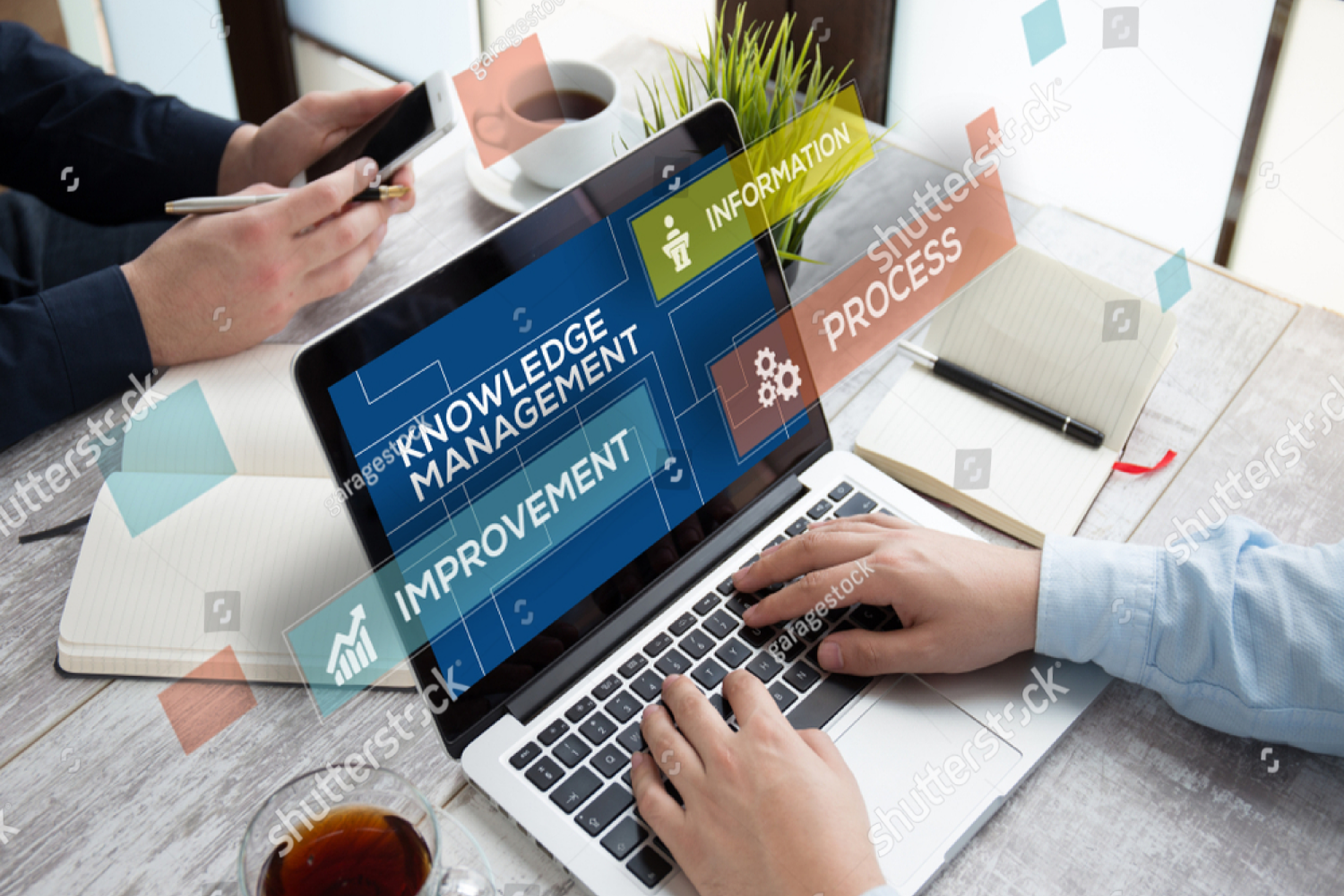What is Enterprise Knowledge Management? Why is it important?
by VIDIZMO Team, Last updated: June 3, 2025, Code:

Large organizations like yours comprise 1000s of employees. Having the right enterprise knowledge management system in place is critical in maintaining your competitive advantage.
How so?
Studies show that aligned organizations are 72% more profitable - considerably outdoing their competitors.
Now, you may ask, “What is Organizational Alignment?” Well, it is nothing more than ensuring compatibility between all your various teams – bringing them all on the same page with a clear understanding of the company goals and values as well as having swift access to the right information.
But this alignment doesn’t just happen out of nowhere. (Nothing in life is that easy)
For that, you must ensure a proper record of all your organizational knowledge – this includes all your processes and the collective experiences of your knowledge worker (better known as their tacit knowledge).
You must clearly understand enterprise knowledge management, how it is beneficial for your organization, and the tools required to ensure its effective implementation. The good news is we will cover it all here for you today!

Let’s Define Knowledge Management…
Defined in multitudes of ways, the meaning of “Knowledge Management” differs from company to company – but it is more or less seen as a process of streamlining knowledge:
-
Discovery
-
Capture
-
Sharing
-
Application
According to a research paper by D. Jimenez-Jimenez et al.:
“Knowledge management is all about managing the flow of information, which ensures that the right people get the right information at the right time.”
What Exactly is Enterprise Knowledge Management?
It is simply the use of appropriate tools to establish an enterprise knowledge base accessible only to your authenticated users (these can be internal employees and/or your external stakeholders).
In an organized library, you must capture, store, manage, share, and preserve high-priority organizational knowledge for as long as required (a lifetime or more if need be).
With this platform, you can record and easily seek out your explicit knowledge (all your relevant documents, videos, audios, and much more) as well as tacit knowledge (like interviews of your subject-matter experts) previously held only by your critical knowledge workers.
Imagine the horror of losing all that once they leave – a company wanting to survive a lifetime can’t afford to make such a grave mistake!
But that’s not all. You can even establish a public knowledge base organized for your customers and external stakeholders – with all your how-to guides, promo content, demos, product education videos and other media content.
Benefits of Enterprise Knowledge Management
Knowledge Management System is a critical need of the hour for large organizations – and with good reason. Here are all the benefits of such a system:
Single Source of Truth
Let’s paint a scenario:
Imagine sending an outdated product datasheet to your prospects and realizing this a week late having never heard back from that said prospect. And why would you? The datasheet didn’t mention many of the product updates that your prospect required. Naturally, they moved on to another more relevant solution.
But you will never have to worry about this happening if you maintain an organized central repository – your very own knowledge base with all your digital media assets accurately and quickly searchable in one place.
Here’s a tip:
VIDIZMO’s video content management system (supporting 255+ video and other digital asset formats) does just that for you, if you are looking for such a solution.
It will be a Single Source of Truth of your content (videos, audios, documents and much more) – a trusted source of information for all your organization (your very own knowledge base). Hence, this is a core benefit of a knowledge management system that saves you tons of time, effort and money!
Questions Answered in Real-Time
Effective enterprise knowledge management practices within organizations support a culture of just-in-time learning.
You can do this by providing on-demand recordings with edited-out clips of informative meetings, relevant onboarding & training sessions, product how-to videos, financial data and much more – and be sure to organize and preserve these in your knowledge base.
Reduce Repetitive Meetings
A survey by the University of North Carolina showed that 70% of work meetings are found to be unproductive with repetitive information. With a meeting on average costing around $338, we really can’t afford to have unproductive meetings.
This is why having important work meetings recorded, edited, and uploaded as on-demand videos in your knowledge base reduces the number of such redundant meetings
Video for Enterprise Knowledge Management – VIDIZMO Is the Way to Go
In this fast-paced age of short attention spans and high growth expectations, knowledge management cannot be left in the dark ages of lengthy documents.
Videos are the way to go in this day and age.
An enterprise video platform allows you to establish a video knowledge management platform – well-connected with all your other business applications, including Online Meeting Solutions (like Zoom and MS Teams) and Learning Management Systems (like Blackboard).
VIDIZMO allows you to create your organization’s very own knowledge base – or a Corporate YouTube – that can handle videos along with all your other digital media types.

Here you can:
Store – scalably deploy in the cloud of your choice, on-premises, in a hybrid model or simply opt for a more affordable SaaS application.
Edit – clip and stitch together lengthy meeting recordings into engaging videos with AI-powered transcription and its translated closed captions in 50+ languages.
Organize – arrange your videos and other digital assets in playlists and collections, organize them in categories with the aid of auto-tags and have the important ones featured on your home page.
Search – jump right to the right parts of a video through the in-video smart search for spoken words, on-screen text, faces and objects.
Limit Access – to media within your organization, or even go further to restrict access to certain users or groups, if need be.
Collaborate – using times annotations, comments, public or private sharing, in-video quizzes, polls, surveys, and much more.
Moderate – users with the “moderator” role type can approve or reject content uploaded on the portal.
Archive – your unedited videos and other documents in an archival portal separate from your regular library.
Embed – have your player or portal tab embedded in your SharePoint, LMS, or any other 3rd party site or application
Above all else, this feature-rich knowledge base is accessible any time, anywhere, on any device or browser. Your videos are automatically transcoded and streamed using modern streaming protocols like HLS.
Plus, with adaptive bitrate streaming and CDN support, videos are smoothly delivered globally without a hitch or fear of buffering despite weak bandwidth conditions.
But don’t take our word for it. Request a demo yourself!
Or simply try the solution for free yourself!
Jump to
You May Also Like
These Related Stories

Integrating Knowledge Management with Video Content Management Systems

Using a Video CMS Platform to Aid the Knowledge Management Process








No Comments Yet
Let us know what you think